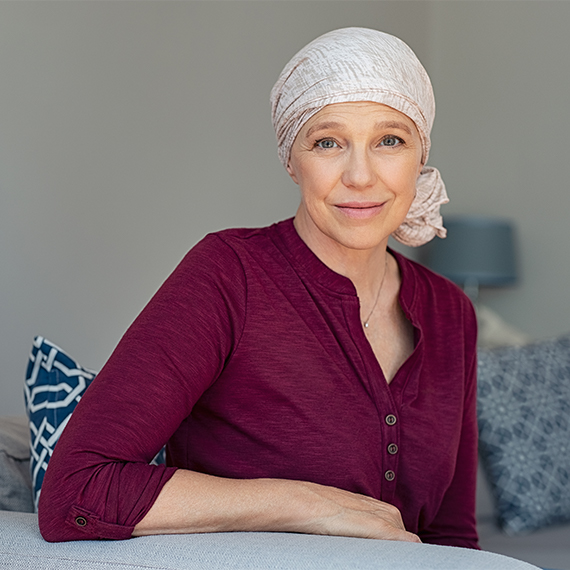Our Specialties

Anxiety Disorders
We all worry from time to time about stressful events or circumstances. However, if your anxiety is easily triggered or you experience a constant, vague fear that goes unresolved, you may have an anxiety disorder. Anxiety disorders include generalized anxiety, social anxiety, PTSD, phobias, OCD, and anxiety related to stress, and therapy can be beneficial for any and all of these disorders.
Research shows that anxiety is the most common mental health disorder, affecting 40 million adults in the United States – yet only 36% of them seek treatment. The good news is that there are many different tools and resources for managing stress and treating anxiety. At Orange County Health Psychologists, we have expertise in a wide variety of treatment methods for anxiety disorders that can help you.

Depression & Mood Disorders
Depression is a feeling of sadness and/or emptiness that lasts for more than two weeks. It interferes with your level of motivation, your relationships, and your ability to function in your daily activities. Depression can vary from mild to severe, ranging from a slightly “blue” mood to suicidal thoughts. It can also come in many forms, such as major clinical depression, dysthymia, seasonal affective disorder, postpartum depression, and bipolar disorder.
According to the World Health Organization (WHO), over 264 million people around the world suffer from depression. If you think you may be depressed, the first step is to be evaluated by a qualified therapist. If you are diagnosed with depression, psychotherapy is highly recommended, especially for mild to moderate depression. For moderate to severe depression that doesn’t respond to therapy or lifestyle changes, antidepressants with therapy may be the best option. Our skilled team of providers at Orange County Health Psychologists can help you with evaluation, therapy, and medication if needed. Contact us today for more information.

Grief & Loss
The shock, sadness and confusion that accompanies the loss of a loved one can be extremely intense and painful. Whether the loss was expected or sudden, the process of grief unfolds differently for everyone. Loss of a family member, friend, co-worker or another meaningful person can trigger feelings of grief. However, we may also feel grief after a major life change, such as divorce or job loss. We can expect to grieve not only when we lose a beloved person, but any time we experience the loss of our identity, hopes and dreams, or expectations.
Therapy can help you move forward in grief, especially if you are having trouble functioning or lack a strong support system. Uncontrollable crying, inability to perform daily tasks, and feelings of hopelessness can be difficult to manage on your own. If you have experienced loss, you do not have to grieve alone. The providers of Orange County Health Psychologists are here to support you through this difficult period.

Chronic Disease & Illness
The definition of a chronic disease is one that lasts three months or longer and interferes with your daily life. Depression and anxiety are very common for people with chronic illness, and they can actually make the symptoms of disease worse. For example, 40% of people with diabetes also suffer from depression. While it’s unclear what might be causation and what might be correlation in cases like this, we do know that successfully treating depression can help with effectively treating diabetes. And some behavioral health problems, such as depression or anxiety, can actually be caused by the diseases themselves. If you are living with a chronic disease, there are many options to treat the associated mental and emotional stressors that accompany it.
While working with a clinical health provider who understands chronic illness, you can design a holistic treatment plan to meet your specific needs, including such things as nutritional counseling, mindfulness-based stress reduction, and many other integrative therapies. You can regain a sense of control and improve your quality of life. At Orange County Health Psychologists, we have specially trained providers who can help you start your journey to a better quality of life.

PTSD, Trauma & Abuse
Psychological trauma is the response to a distressing event or circumstance that overrides a person’s ability to cope with their resulting thoughts and feelings. Some people may develop unhealthy behaviors and coping mechanisms after experiencing trauma and can have difficulties with relationships. Abuse is a type of interpersonal trauma and can be emotional, physical, psychological, sexual or spiritual. Post-Traumatic Stress Disorder (PTSD) is a condition that can develop after the experience of trauma. Sufferers usually report chronic anxiety, sleep disturbances, “flashbacks” or vivid, invasive memories of the trauma, avoidance of emotional intimacy, or a dulled emotional response.
61% of men and 51% of women in the United States say they’ve experienced some form of trauma. What we experience as “traumatic” can be different for everyone, and trauma can occur for reasons that might not be automatically understood; for example, an experience of surgery in early childhood could cause medical trauma. So if you identify with this, you are certainly not alone. At Orange County Health Psychologists, our team of compassionate providers is here to help you face the root of your trauma in order to heal physical or emotional pain.

Stress Related to Psychosocial Factors
There are many types of stress related to psychosocial factors. These can include situational stressors such as relationship stress, grief, loss, legal, educational or financial troubles, health issues, or work-related stress. They can also be age-related developmental stressors such as puberty, “failure to launch,” midlife crises, or the existential crises of those 65 and older.
Stress from psychosocial factors can have a significant impact on overall mental health and should be an important consideration in determining which therapeutic methods will be the most beneficial for you. Supportive or problem-solving therapy can help you navigate the stress and ensure that your stress reaction does not become chronic. If you’re struggling from any of the life stressors listed above, our providers at Orange County Health Psychologists know how to help you. Contact us today.

Substance Abuse & Addiction
Addiction is a complex condition sometimes referred to as a disease. A person with an addiction will compulsively use substances or perform certain actions in spite of any harmful consequences. Alcohol and substance abuse, especially opioid abuse, are the most common types of addictions, but things like shopping and pornography can become addictive as well. There are many effective treatments for addiction, including Cognitive Behavioral Therapy and medications.
Any kind of addiction can have a negative impact on your life and the lives of everyone around you. If you are struggling with addiction, including sex or pornography addiction, you’re not alone – tens of millions of Americans are suffering too. At Orange County Health Psychologists, we can help you overcome your addictions and forge your own path to recovery. Call us today.

ADHD/ADD
Attention Deficit Hyperactivity Disorder (ADHD) and Attention Deficit Disorder (ADD) are chronic conditions with symptoms that include difficulty focusing your attention, hyperactivity and impulsiveness. These conditions can contribute to difficulties at school or work, trouble with relationships and low self-esteem. There are a number of effective treatments for ADHD/ADD, but most involve some combination of therapy and medication.
While many people learn in childhood that they have ADHD/ADD, some do not discover this until they are teenagers or even adults. If you suspect that you or your child may have one of these disorders, a diagnosis can be life-changing, as there are many tools and techniques available that can help you better navigate the world – and better appreciate the unique gifts ADHD/ADD has given you or your child. The providers at Orange County Health Psychologists can administer an assessment for ADHD/ADD and provide you with a variety of therapeutic options, including drug-free treatments.

High-Functioning Autism & Asperger’s
“High-Functioning Autism,” formerly listed in the DSM-5 as “Asperger’s,” is Autism Spectrum Disorder (ASD) with no intellectual disability. ASD is a developmental disorder that affects communication and behavior in children and adults. There are a wide range of symptoms (a “spectrum”) associated with ASD, but these generally include difficulties with communication as well as restricted interests and repetitive behaviors. There is no “cure” for ASD—it is a neurotype, not a mental illness or disease.
If you have ASD, you may struggle to maintain friendships, relationships and employment. Common comorbidities of ASD such as Sensory Processing Disorders (SPD), ADHD/ADD, anxiety, and depression can add to your challenges. If you are struggling with these challenges because of your ASD, or if you suspect you or your child may have ASD and would like to be assessed, Orange County Health Psychologists can help. We have training and expertise in Autism Spectrum Disorders and will work with you to better navigate your life, regardless of what challenges you face. This includes couples and family therapy to support relationships impacted by ASD.

Chronic Pain
Chronic pain is persistent pain that may last weeks or years. This pain can limit your ability to function at home or at work, or engage in any of the activities you enjoy. Experiencing prolonged pain is also physically and emotionally stressful, and this chronic stress can affect your mood, thinking and behavior. Unsurprisingly, people with chronic pain are four times more likely to have depression or anxiety than those who do not.
But did you know that psychotherapy can be a highly effective treatment for chronic pain? Cognitive Behavioral Therapy (CBT) and Acceptance and Commitment Therapy (ACT) are two common methods for retraining your brain around the experience of pain so that you can ultimately attain relief from symptoms and gain a better quality of life. If you are among the 20% of people in the United States who suffer from chronic pain, the providers at Orange County Health Psychologists have the skills to help you find relief.

Eating Disorders
Eating disorders are illnesses characterized by a preoccupation with food and body weight, coupled with disturbances in eating behaviors. There are three main types of eating disorders – anorexia nervosa, bulimia nervosa and binge eating disorder. It is common for these disorders to co-occur with anxiety, panic attacks, Obsessive Compulsive Disorder, and alcohol and drug abuse problems.
Without treatment for both the emotional and physical symptoms of these disorders, they can cause debilitating complications and even death. If you are one of the 9% of Americans struggling with an eating disorder, we can help you. Orange County Health Psychologists are trained in the treatment of eating disorders and can work with you to restore your health and your relationship with yourself.

Clinical Health Psychology
Clinical Health Psychology is the application of scientific knowledge about the relationships between behavioral, emotional, cognitive, social, and biological components of health and disease to the promotion and maintenance of health and the prevention, treatment and rehabilitation of illness and disability.1 At Orange County Health Psychologists, we have providers with training in all aspects of Clinical Health Psychology because it is a crucial component of our integrated care for body, mind and spirit.
As one example of our Clinical Health Psychology services, we can provide nutrition counseling for optimal mental and physical health. We can teach you:
- About nutritional deficiencies and hormonal imbalances that are commonly misdiagnosed as mental health disorders
- How to use nutrition to stabilize blood sugar, reduce stress, promote brain health, improve sleep, and decrease inflammation (a leading cause of all major diseases).
- How to implement holistic strategies to replace or complement pharmaceutical interventions
Contact us today to start your personal journey to well-being.
1From American Board of Professional Psychology website (abpp.org)
Take your first step to
Healing, Health & Wellness

